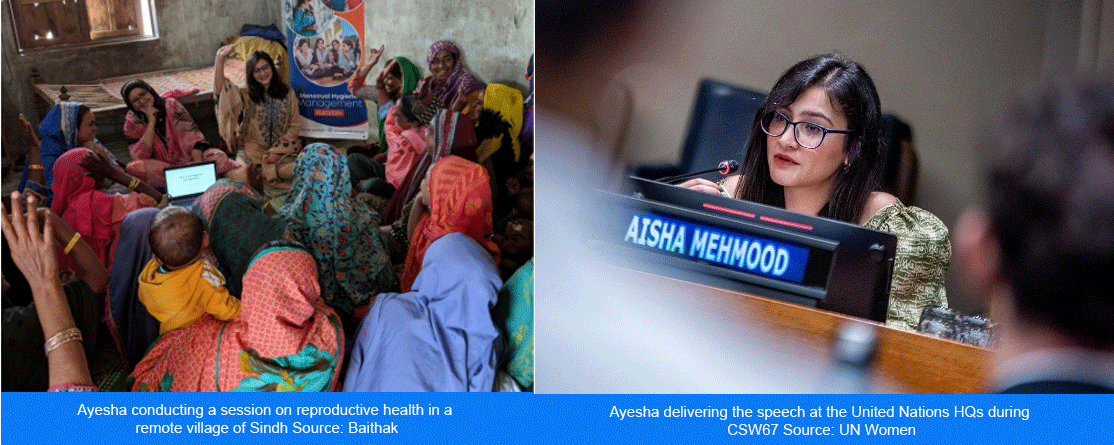By: Our Correspondent
NEW YORK: Ayesha Amin, a social entrepreneur and a gender justice activist who is the Founder of Baithak -Challenging Taboos emphasized the importance of expanding tech access to girls and women in marginalized communities and making digital spaces for women as the world moves forth towards digitalization. She was speaking at the United Nations in New York City during the 67th Session of the Commission on Status of Women (CSW67).
Ayesha was part of an international experts panel for the first-ever Youth Interactive Dialogue at the most prestigious global conference for women celebrated by member nations across the
world. Speaking at the Youth Interactive Dialogue, she represented Pakistan with honor and pride as she wrote the history in the first-ever CSW convening that formally included young leaders in official negotiations at the headquarters of the United Nations in the U.S.
Ayesha through her organization, Baithak, works for women’s access to sexual and reproductive health and rights in Pakistan. Since 2018, Baithak has impacted the lives of over 200,000 girls and women across Pakistan, particularly in the country’s rural south, Sindh. Baithak’s recent initiative, Gul, is an Artificial Intelligence powered voice assistant that provides reproductive health information to people in rural communities (using local languages) via WhatsApp.
Baithak’s work, particularly Gul, has been acknowledged by several international agencies including the United Nations in Pakistan, UNWomen, and UNFPA.
Ayesha’s speech at the global agency’s headquarters emphasized the importance of expanding tech access to girls and women in marginalized communities and making digital spaces for women as the world moves forth towards digitalization.
‘As we fight to close the gender gap in digital access, we are leaving girls and women in marginalized communities far, far back. Tech access is a necessity, it should not be a luxury or a
privilege for some. There is a huge need for investments in policies and solutions that can localize technology, that can be available in languages people understand, that can leverage audio and visuals for users with low literacy, and that can make tech models inclusive for girls and women who are in these marginalized communities.’- Ayesha Amin at the Youth Interactive Dialogue, CSW67
